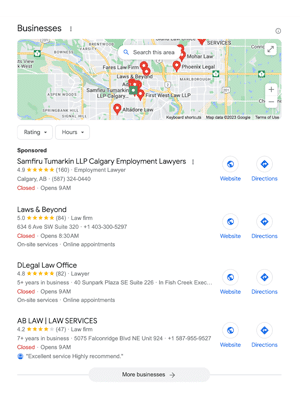Your online reputation is your most valuable asset. In times past, a business reputation was what other businesses, employees, and customers thought of you. But now in the world of the internet and social media, much has changed. Anyone in any country can read online what people are saying about your business.
The power of Google is unimaginably stronger than word of mouth could ever be, and this has led to the importance of online reputation management.
What is Online Reputation Management
Online Reputation Management (ORM) involves actively monitoring mentions of your brand. ORM also means making sure that people are saying positive things about your brand. Your online reputation is how people perceive your business when it appears in a search engine result. These often first impressions will influence how the reader feels about your brand.
Why Online Reputation Management is Crucial to Your Brand
Online Reputation Management (ORM) is vital for large and small companies because it plays a crucial role in your company’s success. Statistics show 97% of businesses feel that online reputation management is essential for their business. 98% felt the same about online reviews.
First, your revenue can significantly depend on your ORM. Many people trust online reviews as much as personal recommendations. Negative reviews can quickly turn a potential customer off. It doesn’t stop here. Candidates looking for work will search for a company and read what others are saying before making a decision. If you are looking for investors—which may be necessary in the case of startups—they will research your company online.
Your ORM speaks to your trust and credibility. For example, a customer may be hesitant to buy your product or service if there is a string of unanswered negative comments. Of course, everyone expects some negative reviews—but how you handle negative reviews speaks to how much you value the insights your customers provide.
On a similar note, reading what people are saying can provide you with valuable feedback that you can put into place—increasing your sales. Some reviews may even include suggestions that you may not have thought of. Customers love it when they put an idea forward, and the company listens—what a boost for your reputation.
Related reading: Online reputation management mistakes to avoid.
There is no escaping ORM if you want your business to excel. Not being on top of this will more than likely lead to your website dropping down in the rankings. With online competition as fierce as it is today, that is something you can’t afford.
10 Amazing Things You Can Do to Manage Your Online Reputation
1. Get on all of the relevant internet platforms
The first step to manage your online reputation is to set up a Google My Business and Facebook profile. However, you can’t forget social media platforms such as Instagram, Pinterest, and Twitter. LinkedIn is perfect for those in professional industries such as technology, finance, etc. Encourage your senior employees to create accounts that are linked to your company. Create some professional videos of your products to upload on YouTube.
2. Pay close attention to your social media accounts
A common mistake business owners make to have social media accounts without using them. All of the social media platforms use intricate algorithms that determine the strength of a social media account. The only way it can do that is by monitoring the interaction between your accounts and your customers or followers.
It is crucial that you regularly post new content on your pages, share reviews, and keep customers informed about your business updates. This way, you can help to ensure that your accounts are outranking others.

3. Does your company only offer one product?
If the answer is no, you may have to create more than just one social page or website for each product. This is particularly true if a specific product isn’t readily associated with your brand. Own each individual product or service you offer and make sure that it is associated with your brand, not just your company name.
4. Extend your online reputation management to those linked to your business
It might be that you are the founder, director, manager, and customer service rep. But if you have various executives or managers, they must be present online too. There are specific industries where people will search for the name of the person they dealt with instead of the company name. It is necessary for such people to have corporate social media accounts that are associated with your online company presence.
5. Claim your personal voice with Authorship
By claiming authorship where possible, your pages and articles will rank higher because of their individuality. This makes for a more robust online reputation and ranking power because your words stand out more than those that tend to recycle content from other sites. This is particularly important if you are going to continue writing original content.
6. Appreciate the benefits of blogging
When you are aware of your keywords and long-tail keywords, as well as knowing how to use them well, you can enhance your SEO like you wouldn’t believe. Blogging allows you to naturally increase the number of keywords you publish online, improving your search engine rankings.
7. Pay attention to what people are saying
Some people complain for the sake of complaining; however, some customers have a legitimate reason for their negative review. When you start to receive the same or similar negative reviews about the same issue, it is time to address the problem. Fixing the issues in your product or service enables you to provide better customer service. At the same time, you can show new customers that you do actually listen. New or returning customers will be more inclined to be loyal instead of switching to your competitor.
8. Own up to your mistakes
Saying sorry for your mistakes is not a sign of weakness. In fact, a genuine apology can go a long way in diffusing the situation. Usually, if a customer has left a bad review, apologizing is often enough to prevent the situation from getting out of hand. An honest apology and possible solutions may be enough for some customers to change their negative review into a positive one.
9. Online arguments do nothing for your business reputation
It’s hard not to bite the bait, but in no circumstance should you engage in an online argument. It’s even harder when you know you are right, but those reading your replies will only see this as unprofessional. The first thing to do is walk away from your device and give yourself a chance to calm down before you type something you may later regret. Go back to the conversation and encourage the customer to go offline. It may even warrant a phone call when you are in the right frame of mind.
10 Use online reviews to manage your reputation
Online reviews are an excellent way to manage your reputation. When potential customers check out your services and brand, they look at what others say about you. And, the more reviews you get, the stronger your reputation.
For example, imagine comparing two companies that both have 4.5-star ratings. However, you notice that one company has over 1,000 reviews, whereas the other only has a few. Now, who has the better reputation?
One way to get more reviews is to use online review management software such as Starloop.
Our automated review system invites your customers to leave reviews. When you receive a review, notifications alert you, and you get the chance to respond to the review.
If you’re interested to see how Starloop can strengthen your online reputation, then contact a member of our team today.

